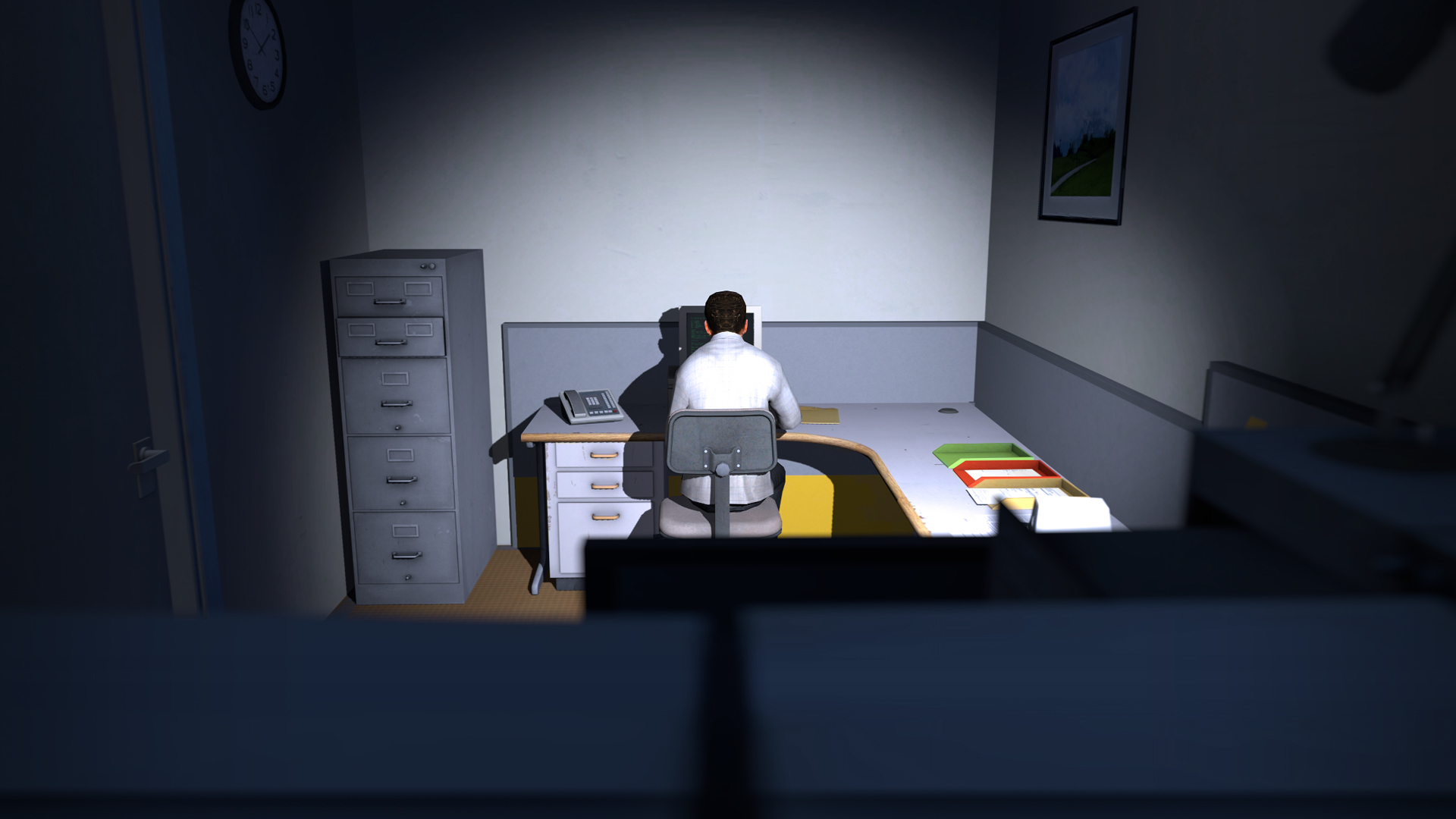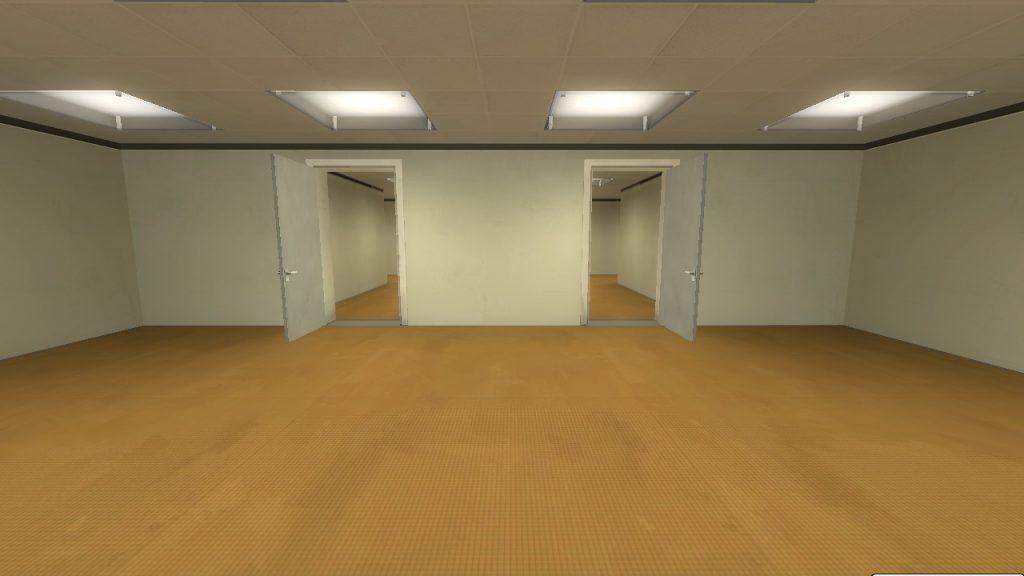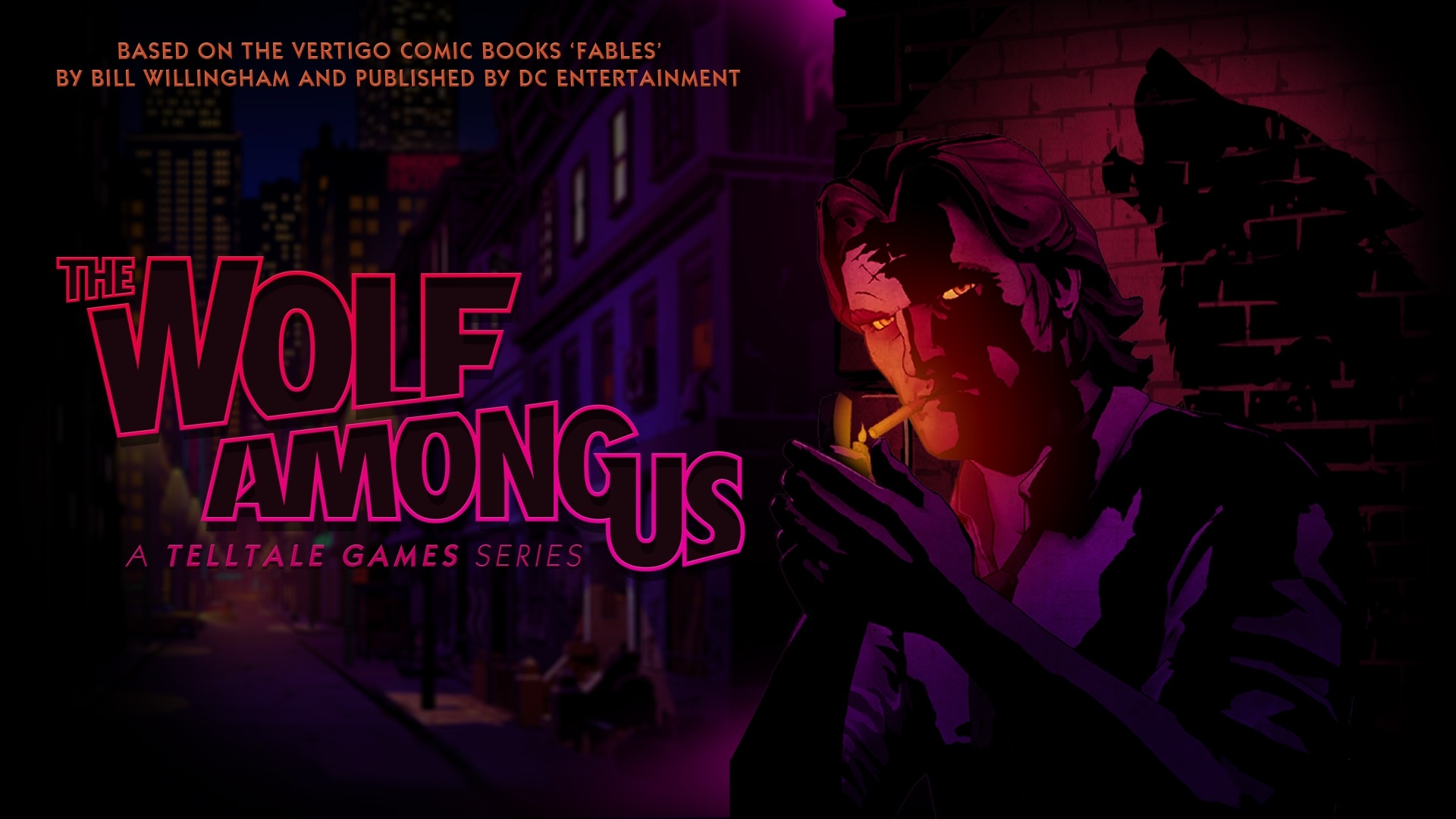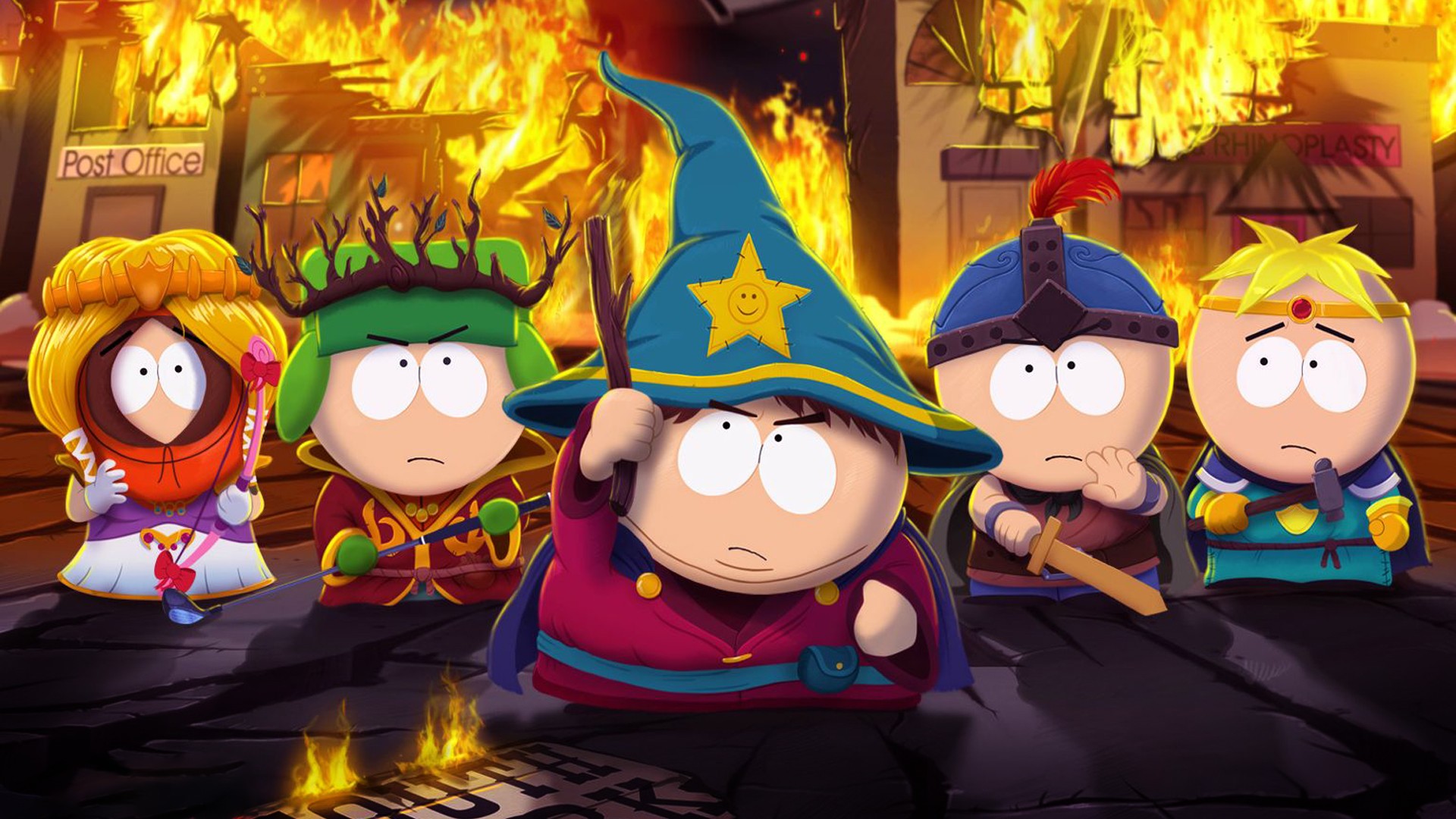Yes, this game came out several years ago. In my opinion, this doesn’t matter. With an intriguing story and decent mechanics, any game new or old are worth a replay, a reflection, perhaps a recommendation to a fellow video game player. Those who are “late to the game”, if I were to aptly name it – players who you know would appreciate the awesomeness of a game they haven’t obtained yet, despite the year it came out. The Stanley Parable is one of those games.
Raise your hand if you have ever had an office job.
Now, with your hand still raised, put your thumb down if it wasn’t the job of your dreams.
Next, put your index finger down if you have worked your fingers to the bone at said office job and received little to no recognition. So far so good.
From here, put your pinky finger down if your office job consisted of repetitive, mind-numbing responsibilities, such as clicking a button for eight hours a day like a well-trained monkey.
Lastly, put your ring finger down if your office job vacuumed all inspiration from your soul. Is it down? Good.
With your middle finger, hold it up to that office job and tell it you’re not going to bind to its rules anymore.
This is the essence of the The Stanley Parable, an interactive PC video game, originally developed in 2011 by Davey Wreden of Galactic Café. Wreden later collaborated with Source engine modeler William Pugh on the game, and an enhanced HD remake was released for PC in 2013.
In The Stanley Parable, you play as Stanley, referred to by name or simply by “Employee #427”, a man who works for a generic, bland, unnamed company. You are told during the game’s introduction by the Narrator (voiced spot-on by British actor Kevan Brighting):
“Stanley worked for a company in a big building where he was Employee #427. Employee #427’s job was simple: he sat at his desk in room 427 and he pushed buttons on a keyboard.
Orders came to him through a monitor on his desk, telling him what buttons to push, how long to push them, and in what order.
This is what Employee #427 did every day of every month of every year, and although others might have considered it soul rending, Stanley relished every moment the orders came in, as though he had been made exactly for this job. And Stanley was happy.”
The Narrator continues on after this, explaining how Stanley arrived to work one day finding no other employees in sight, and he sat frozen at his computer not knowing what his next move should be. (Read: subtle message about being so well trained that you don’t know how to handle something out of the norm.)
Eventually, Stanley gathers up the courage to leave his desk and explore the empty office building. This is where you take the steering wheel as the player and begin the thought-provoking road trip that is The Stanley Parable.
There aren’t any fancy graphics or mechanics in this game. You can walk and you can interact with key items, but that’s it. As you exit Stanley’s office, you’ll wander through boring-looking corporate rooms with cubicles and hallways with standard-issue office doors, trying to locate any fellow employees.
Alas, the office is void of human presence. That’s OK, this game isn’t about chatting with locals, being pretty, fighting enemies, or leveling up type of stuff. It’s an extremely engaging, effectively thought-provoking experience that makes you question the rules of video games and even draws parallels between itself and the monotony of corporate life.
The Narrator begins telling Stanley’s story as you’re playing, explicitly instructing you toward your next destination. Upon stepping out of Stanley’s office, he says:
“All of his co-workers were gone. What could it mean? Stanley decided to go to the meeting room; perhaps he had simply missed a memo.”
If you’re a veteran gamer, your natural instinct will be to follow the directions to the meeting room, like a good little worker bee, in order to obtain your treats.
But this is a video game that allows you to question the rules of video games.
After a short time, Stanley encounters his first opportunity to break some rules. He can choose to follow the Narrator’s directions, or divert from his directions and make his own choices. Diverting from the game’s “intended path” will provoke the Narrator to change the story to mirror your choices. And, oh yes, you can piss the Narrator off if you’re continuously insubordinate. Trust me, you want to be.
Upon your first completion of the game, you’ll “wake up” again at Stanley’s desk, the Narrator encouraging you to look for your co-workers once more. If you were to play this game following the rules, you could run through it in less than five minutes. Hell, effectively “completing” the game in less than 4 minutes awards you an achievement. It would be a disservice to the game to do so, however. As you repeatedly loop through the game, each time you exit Stanley’s office you’re more curious to push the envelopes that expand beyond normal game play. You can find yourself an hour into the game and still not have not experienced every pathway. The Narrator is so very dry, that you’ll find yourself eager to loop through the office again just to disobey him and see what he’s like with ruffled feathers.
The game has a multitude of vastly different endings, ranging from typical, to somber, to hilarious, to shocking. The running number of player-found endings range from 9 to 18, but there could be more, as the game offers so many opportunities to try something new with each loop.
There’s something to be said for the journey, as well. Each walk through the office cracks off another cinder block from the fourth wall, as you discover less about the missing employees and more about yourself as a player of video games. You’ll run into nightmares, labyrinths, and even cameos from other video games, depending on which paths you choose to take. Your experiences and revelations are accompanied by the extra dry-humored, multi-faceted, philosophy-invoking Narrator, who really makes you think outside the box.
If you haven’t already, you should definitely, definitely pick up The Stanley Parable, available on Steam for $14.99 – and worth every penny.











